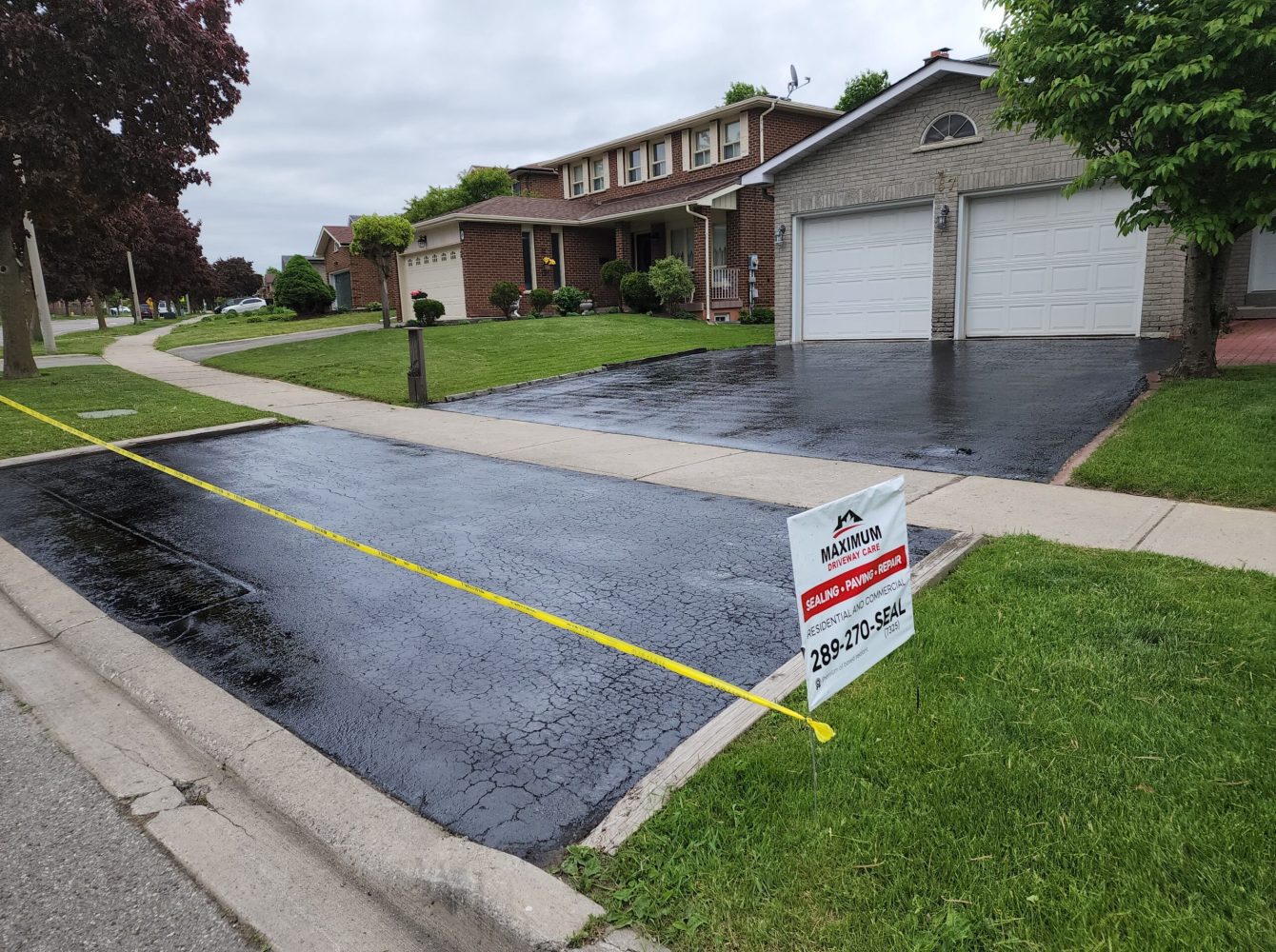Long-lasting Results: Asphalt Patch Repair Through Precision Sealing
Long-lasting Results: Asphalt Patch Repair Through Precision Sealing
Blog Article
Cold Mix Asphalt Vs. Hot Mix Asphalt: Which Is Right for You?

Make-up Distinctions
Cold mix and warm mix asphalts differ substantially in their composition, with unique characteristics that affect their efficiency and applications. Cold mix asphalt is produced by emulsifying the asphalt binder with water and an emulsifying agent prior to blending it with aggregate. This method permits the asphalt to be practical at lower temperatures, making it excellent for short-term repair services and for usage in colder weather conditions. Warm mix asphalt, on the various other hand, is made at heats, commonly in between 300-350 ° F, which aids to achieve better compaction and a much more long lasting end product. The warm mix asphalt manufacturing process involves heating the aggregate and asphalt binder individually before integrating them at the asphalt plant.
Moreover, chilly mix asphalt has a tendency to be less dense and much more flexible than hot mix asphalt. This flexibility makes it better matched for locations with greater degrees of motion, such as driveways or roads with heavy traffic. In contrast, warm mix asphalt is recognized for its high durability and resistance to rutting and cracking, making it a recommended option for freeways and high-traffic roads where long life is essential.
Setup Process Differences
The process of mounting cold mix and hot mix asphalt shows noteworthy variances in their requirements and treatments. In contrast, warm mix asphalt requires a much more intricate setup procedure. Due to the heating demands, warm mix asphalt installments are normally lugged out by experts with specialized equipment, ensuring a much more irreversible and structurally audio outcome.
Resilience and Durability Variables
When thinking about asphalt options, resilience and long life are essential factors to examine for long-term sidewalk performance. Hot mix asphalt (HMA) is recognized for its phenomenal longevity and durability.
In terms of long life, HMA usually exceeds CMA due to its premium stamina and resistance residential properties. HMA pavements have a longer solution life, needing much less regular repairs and upkeep, which can translate to set you back savings in the lengthy run. In addition, HMA sidewalks are more quickly customizable to fulfill specific job requirements, additionally enhancing their longevity.
Expense Factors To Consider
Considering the economic implications is a crucial element when reviewing the option in between hot mix asphalt (HMA) and chilly mix asphalt (CMA) for sidewalk projects. While the preliminary price of hot mix asphalt is normally greater than that of cold mix asphalt, HMA commonly provides a more economical solution in the future because of its premium resilience and durability. HMA is recognized for its ability to endure rush hour loads and harsh climate condition, lowering the need for frequent repair work and maintenance. On the various other hand, cool mix asphalt is extra economical upfront however may need even more constant patching and resurfacing, bring about greater upkeep prices over time.
Along with product expenses, it's important to consider the expenses linked with installment and maintenance when comparing HMA and CMA. HMA generally calls for specific devices and experienced labor for proper installment, which can influence general project prices. On the other hand, CMA is simpler to function with and can commonly be applied using less complex methods, potentially decreasing installation expenditures. Eventually, the decision in between HMA and CMA ought to take into account not simply the initial price however additionally the long-lasting financial effects to identify one of the most economical option for the details pavement task.
Environmental Effect Contrast
Comparison of the environmental influences between hot mix asphalt (HMA) and cool mix asphalt (CMA) reveals try this out unique distinctions in sustainability techniques. HMA production needs heats, leading to boosted power intake and greenhouse gas emissions. The process additionally launches volatile organic compounds (VOCs) and harmful air toxins (HAPs) right into the atmosphere. like it In contrast, CMA is created and used at reduced temperature levels, lowering energy usage and emissions dramatically. The reduced manufacturing temperature levels of CMA result in decreased fuel consumption and lower levels of CO2 discharges, making it a much more ecologically pleasant alternative.
Additionally, the use of CMA often entails reusing existing asphalt pavement, advertising resource preservation and decreasing the amount of waste sent out to landfills. By deciding for CMA over HMA, road construction tasks can contribute favorably to environmental preservation efforts.
Verdict
Finally, the selection between cool mix asphalt (CMA) and hot mix asphalt (HMA) depends upon numerous factors such as structure, installment process, durability, durability, price, and environmental impact. cold mix asphalt. While CMA offers a quick and cost-efficient remedy for minor repair work, HMA makes sure superior sturdiness and long life for rush hour areas. Think about these aspects meticulously to determine which type of asphalt is the ideal selection for your paving requires

Taking into consideration the financial effects is an important facet when assessing the selection between hot mix asphalt (HMA) and chilly mix asphalt (CMA) for sidewalk projects. While the preliminary price of hot mix asphalt is normally greater than that of cold mix asphalt, HMA commonly provides a more economical remedy in the long run due to its remarkable longevity and longevity. asphalt patch repair.Contrast of the ecological impacts between hot mix asphalt (HMA) and chilly mix asphalt (CMA) discloses distinctive differences in sustainability practices.In final thought, the option in between cool mix asphalt (CMA) and warm mix asphalt (HMA) depends on various factors such as composition, setup process, toughness, long life, price, and ecological impact
Report this page